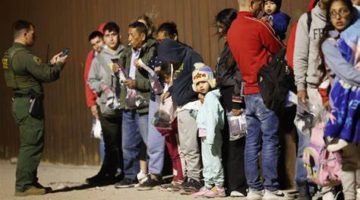HARARE, Zimbabwe (AP) – President Robert Mugabe and his supporters targeted white farmers this week, with militants forcing about a dozen ranchers and croppers off the land and Zimbabwe's longtime ruler fanning racial tensions amid fears he will again turn to violence to hold on to power.
Mugabe's opponents pressed a lawsuit to compel the publication of long-delayed results of the March 29 elections they say Morgan Tsvangirai won. The opposition leader urged the international community to persuade Mugabe to step down.
“Major powers here, such as South Africa, the U.S. and Britain, must act to remove the white-knuckle grip of Mugabe's suicidal reign and oblige him and his minions to retire,” Tsvangirai wrote in April 7’s edition of Britain's Guardian newspaper.
“How can global leaders espouse the values of democracy, yet when they are being challenged fail to open their mouths?” he asked.
Tsvangirai was in South Africa holding meetings with “important people” in the regional powerhouse April 7, Tendai Biti, secretary-general of the opposition Movement for Democratic Change, said. Biti declined to give details. South African President Thabo Mbeki, who mediated failed pre-election talks between Tsvangirai's and Mugabe's parties, was out of the country.
Mugabe's ruling party has demanded a recount and a further delay in the release of results.
Mugabe has virtually conceded he did not win, and is already campaigning for an expected runoff on a platform of intimidation and exploiting racial tension.
Mugabe urged Zimbabweans to defend land seized from white farmers, the state-controlled Herald newspaper reported him saying at a funeral Sunday, April 6.
“This our soil and the soil must never go back to the whites,” Mugabe said, referring to whites by the pejorative Shona term “mabhunu,” The Herald reported.
He spoke as militants began invading white-owned farms and demanding the owners leave in what the Commercial Farmers Union charged was an orchestrated campaign. Such land seizures started in 2000, and were Mugabe's response to his first defeat at the polls, in a referendum to entrench his presidential powers.
Union spokesman Mike Clark said at least 23 farms were invaded and that about half of the farmers had been driven off their land.
He said the farms were in at least seven areas across the country and that the land grabs have “become a national exercise now.”
Police in some areas had persuaded invaders to leave, but in others said they could not intervene because it was a political matter, he said.
Farmer Graham Richards said about 20 local veterans of the 1970s bush war for black rule moved onto his Pa Nyanda game lodge in southern Masvingo on the night of April 5.
“We were terrified,” he said, though the invaders were unarmed.
On April 6, police arrived with a bus and took them off the land. Two leaders of the veterans came to the farm to apologize, saying what had happened was wrong, he said.
“I think they (police) put a stop to it for the time being, but I don't know what will happen tonight or tomorrow,” he said.
Mugabe’s land reform program was supposed to redistribute among poor blacks the large commercial farms owned by about 4,500 whites that covered 80 percent of the country's best arable land. Instead, he used the farms to extend his patronage system, giving them to ruling party leaders, security chiefs, relatives and friends.
The agricultural base of Zimbabwe, which used to export food, collapsed, and the economy started unraveling. Today, one-third of Zimbabweans depend on international food handouts, 80 percent are jobless, and the country suffers chronic shortages of medication, food, fuel, water and electricity. A third of the population has become economic and political refugees abroad.
The small elite that still lives in luxury has a vested interest in keeping Mugabe in power. He makes them rich with gifts of land, government contracts and business licenses. Some fear prosecution, such as security chiefs involved in the brutal 1980s subjugation of the minority Ndebele tribe in which scores of thousands of civilians were killed.
Tsvangirai has expressed concerns the state would mobilize the armed forces, youth brigades and war veterans to terrorize voters into supporting Mugabe in a runoff.
Mugabe has been accused of winning previous elections through violence and intimidation. Scores of opponents were killed during the 2002 and 2005 campaigns.
Government officials have dismissed fears of violence.
Mugabe, who has ruled since his guerrilla army helped overthrow white minority rule in 1980, has seen his popularity battered by the economic crisis.
Official results for parliamentary elections held alongside the presidential race showed Mugabe's ZANU-PF losing its majority in the 210-seat parliament for the first time in the country's history. Final results for the 60 elected seats in the senate gave the ruling party and the opposition 30 seats each.
Unofficial tallies of presidential results by independent monitors show Tsvangirai won more votes than Mugabe – but fewer than the 50 percent plus one vote needed to avoid a runoff.












No Comment